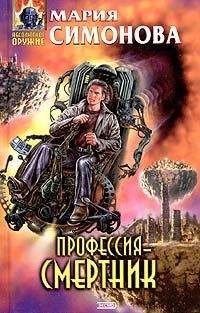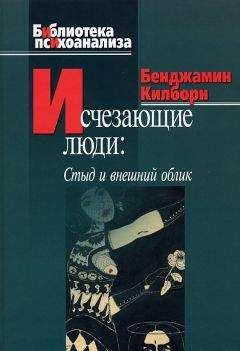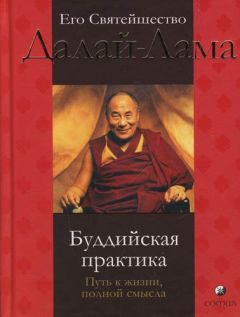Ed Lacy - Lead With Your Left
“Everything is important to you except your own time. When will you learn this isn't our case anymore?”
“You know Mrs. Owens phoned me What am I supposed to do, tell her to ask the switchboard to connect her downtown? Just leave a message for Reed that I called and will be in touch tomorrow.”
“I'll do that, Mr. Holmes,” Landon said, hanging up.
Susan smiled. “What's the matter, the lads afraid they'll overwork themselves?”
“Busy on routine stuff. But I'm not busy, that's why I'm doing this. I'll work it my way. You know I won't be able to move till morning, when the bank opens I'll phone you as soon as I can. If the money is evidence, I don't want any tears or arguments about it.”
“I'm a cop's daughter, I wouldn't be so stupid as to beat the law. And if this will help in any way to find who did Pa in, I wouldn't hesitate a second to—”
“I know, you're a doll.”
Her eyes seemed to laugh at me as she said, “That's not nice talk, Buster. I might give you a box of cigars if things come out right.”
“Now you're talking out of turn. I don't smoke,” I said, as we stepped back into the living room. I pocketed the bankbook. “Get me something with Mr. Owens' signature, and the list of bill numbers. Also an envelope. Make it two envelopes.”
“Have the list in my room—some job copying them all down,” Susan said, dashing out of the living room.
I was about to say it must have been a labor of love but kept my trap shut and asked Mrs. Owens, “Do you remember much about the time Mr. Owens and Mr. Wales arrested Sal Kahn, sent him to the chair?”
“I remember they were promoted for it, made detective second grade. Ed and Al had their pictures in the papers. My, that was a long time ago.”
“Yeah. Did Mr. Owens ever mention that collar, say anything at all about it, during the last couple of years?”
She shook her fat head. “No. He rarely talked about police work. Always said a good cop left his work at the station.”
Susan came back like a nervous wind, handed me the list of serial numbers and dropped two large envelopes on the table. I picked a couple of fifties from the pile for a spot check as Susan said, “You have a real trusting nature.”
“Just careful.” The bills checked with the list. “Put the money in one of the envelopes and don't play with it. Speaking of money, Mrs. Owens, did the late Mrs. Wales ever mention money? Did she seem well fixed?”
“Indeed not. They lived on the upper West Side in a cheap apartment house. On the top floor. Not having children they should have been able to live better but Dora Wales was always in poor health. A wonderfully kind woman. She and Al were very happy. He never once complained about her delicate condition or the doctor bills.”
“That's a fact,” Susan said, picking up the money and giving it a silent count. “She was no bargain, always in bed sick, but they seemed to blend together.”
I thought of Rose and her little man-and-wife private world.
“Never saw them have a fight,” the old lady went on. “And when poor Dora took real sick back in 1949, Al saw to it she had only the best, even though he knew it was hopeless. They must have saved during the years—like I said they never lived well, and all their savings went for these big doctors.”
“Recall the name of any of them?” I asked, keeping an eye on Susan's hands and the money.
Mrs. Owens turned her moon puss toward the ceiling in thought. “Yes, I do. Because I once had to take Dora over to Park Avenue for X-ray treatments when Al was stuck on a case. It was Seventy-ninth and Park and I remember because it was the first time I was ever in that rich section, and the doctor, he had the same name as the ballplayer, Di Maggio.”
“You and Mr. Owens and the Waleses were always on good terms, weren't you?”
“Thicker than mud,” Susan put in, having finished counting and satisfied I hadn't palmed a bill. She put the money in one of the envelopes. “Only thing ever separated them was distance, we in the Bronx and they downtown.”
I took the envelope, sealed it, and wrote across the flap, “Keep this shut and don't finger the money, might still raise prints on the bills.” I gave it back to Susan. “I'm not kidding, don't open this envelope and don't lose it.” I took the second envelope and using my nails, peeled the remains of the tape from the drawer, dropped them in the envelope and pocketed it. “Might get prints from this too, if you haven't smudged it too much.” I took the drawer, looked around, and put it behind the piano, “Leave this here, don't let anybody touch it. More possible prints.”
“And whose prints do you expect to find?” Susan asked.
“If I knew I wouldn't bother taking them. Remember, don't touch the money and—”
“You've told us all that,” Susan said. She pulled a card from her pocket. “You're so busy being a hot-shot cop, you forgot this. Pa used to be a joiner, this is one of his lodge cards, with his signature.”
I said thanks as I put the card in my wallet. There was a moment of awkward silence which the old lady broke with, “I was making supper. We'd love to have you join us, Mr. Wintino.”
“Thank you but my wife is waiting supper for me,” I said, anxious to get going. “It may be the police will be up tonight or tomorrow, routine questions about Wales. An official visit. If they come, tell them exactly what you told me, give them the money if they want it.”
“We certainly will,” Mrs. Owens said. “And I'm grateful for your interest in us. So much has happened today, I'll be glad to get supper over with and take to my bed. I'll be able to sleep now, with Susan home.”
“I'll see Wintino to the door,” Susan told the old lady. At the door she slouched against the wall and was still tall enough to look down at me as she said, “Ma was right about you, you're okay in my book.”
“Why, because I told you to shut up?”
“You're the way I like people—hard. If you weren't married I could spend the night telling you about Venezuela. There's a country—all one big angle.”
“Maybe some other time,” I said, patting her hand as I went out.
On the bus going downtown I kept feeling the bankbook in my pocket like it was uranium, and thinking about Susan Owens. I've never been much of a lover boy. I wasn't shy, but about the time I was old enough to get real interested I was training for the ring, then the army kept me on ice for a couple of years, and then marrying Mary when I was nineteen took me out of circulation. So it was a surprising shock knowing I could spend the night with Susan; even gave me a kind of reverse-English bang... because I didn't want to in the least.
Thursday Night
After a fast shower I put on an old silk ring robe and fried the hamburger, and then had a bowl of cereal because there wasn't anything else to eat in the house. I considered trying to get prints on the hunks of tape, but put the envelope away in my shirt drawer. I'd only mess the tape up and spoil it for the lab. Besides, I knew whose prints I'd find.
I stretched out on the couch and waited for Mary, trying to juggle the pieces of the Owens-Wales puzzle till they made even a hazy picture.
Guess I was damn tired—all I came up with was a headache. Trouble was, nothing made sense. Owens wouldn't tape four grand under a drawer unless there was something wrongo about the money. Or was he merely hiding it from his wife? Hell, it wasn't a few bucks, it, was four grand. Where did he get it from? And Wales with eleven grand on him. One thing was certain, the money had to be the key to the murders. Suppose the two of them had a racket? But what kind of a racket would pay off fifteen grand? Could it be hooked up with a man who was electrocuted a quarter of a century ago? With an old garage torn down years ago?
Above all, why would Wales shoot Owens? Or was I screwy on the garage angle: maybe this was some brand-new racket they were working with the bond house? That didn't add, if they were swiping bonds the loss would be known immediately. Could be that Owens was carrying the eleven grand and Wales wanted it. They could have argued over a payoff and Wales gunned Owens when he refused to split? But hell, a payoff for what? Or was there a third joker in the deck who used Wales' gun, maybe without Wales even knowing it? Still, you don't let a guy take your gun like that, even borrow it. But if there was a third party, could Wales have killed Owens and then was shot himself when he brushed off the third guy? Then why was the dough left on Wales—another “amateur” who panicked at the sight of a stiff? Nuts, no “amateur” would come with a silencer. Still, it had to be somebody who knew Wales' habits, knew he'd be sleeping off a toot—or was the killer plain lucky?
Odd the four grand showed up after Susan Owens came home from South America. Maybe it had nothing to do with Owens? Then why was she talking, or was this a front for another deal? A hard doll like Susan with a mind like a knife could be involved in almost anything. Ought to find what she's really doing down in S.A. And there must be more dough around the Owens house. Damn, I couldn't do this alone; somebody should be digging into Owens' past, another team working on anybody and everybody who ever knew Wales, and then there was a check needed on all safe deposit vaults.... If they'd only put the whole force on this we'd have it licked in a day. The big brass downtown in Central hadn't even searched Owens' house!
Wales and his sick wife... must be tough living all your life with a sickly woman. Crazy thing about these murders, seems to be so many loose ends, you'd think if we keep pulling something will give and unravel the whole mess. You'd pass Owens or Wales on-the street and you'd never make them for anything but a couple of half-dead codgers waiting for a pine box, and all the time they were hip-deep in something shady. And ex-cops too. Damn, how do I know it was shady? They were cops, why should I judge them? For all I know they might have got some market tips while delivering bonds, made a killing. Have to check that.... But why would Owens keep it from his wife, open a phony account? Round and round we go....
Mary came in. She put the ginger ale and ice cream on the table, turned on the TV as she started to undress. She acted as if I wasn't there, never even asked if I wanted to see TV or not. As she undressed and watched some crummy cowboy movie, she talked.
“Dave, it was kicks to be even typing up the reports of this sales conference. Fantastic the way some people make their minds pay off. This wasn't a routine sales talk, mostly it was concerned with a new promotion idea, and oh so clever—a nationally televised quiz program and in certain boxes of this soap powder there will be parts that form a jigsaw puzzle, which in turn gives a strong clue to the jackpot question on the TV quiz. You see the tie-up, the sensational audience participation level? After the jackpot question is reached, anybody at home can phone in the answer— if they've found the clue in the soap boxes—and win a fortune, a double jackpot. Otherwise the studio audience gets a crack at the jackpot. Make the sodas while I wash up, Dave. There's a show on at nine-thirty I want to catch. Don was talking about it. Very literary.”
I made a couple of sodas and she came out of the bathroom and sat beside me. “I was so absorbed in my work, didn't realize how tired I am. What happened to your face, Dave?”
“I was running in the park and slipped.”
“Running in the park! Honestly, Dave, you act like a kid. Think I'll open the bed and we can watch TV laying down. It amazes me how those idea men and women can come up with such wonderful things. Out of thin air they dream up a show that...”
I finished the soda and got the couch into a bed and we stretched out. Mary was still on this cleverness kick. Then she got interested in some junk on TV about a movie star who realizes that despite his thousands of fan letters he's a lonely, lonely man....
About then I dozed off, thoughts flashing through my noggin like a newsreel. I saw Owens dead in the alley, Al Wales sitting shriveled up in the muster room, an empty wreck of a garage in Brooklyn, Susan Owens arching-her back as she leaned against the wall, the bankbook waiting like a surprise package, and Rose's faint perfume, the touch of her fingers on my cheek.
Friday Morning
I awoke before Mary, showered and shaved, shook her awake as I put the coffee on. In a one-room apartment the order of getting dressed is important if you have to make time. The cut on my face looked better and I covered it with a Band-Aid.
Toweling herself after her shower Mary called out, “Where are you off to so early?”
“Checking on a few things.”
“Checking, digging, checking! It's your day off. Why don't you go to a movie?”
“Maybe I will. Want any eggs?”
She pinched her belly. “One egg, no toast or bacon—I'm beginning to spread. I suppose during the course of your being a busybody you won't have time to see Uncle Frank? You promised you would.”
“I plan to see him. I've got news for you, I'm a big boy now, know how to handle my off days.”
Mary gave me what could have passed for a tiny sneer. “Are you a big boy, Dave?”
I was too interested in the bankbook to get excited. I poured the juice and coffee as she slipped into her underwear and stockings, came over to the bridge table I'd set up. I stopped her, ran my hand over her thin shoulders. “Don't you kiss your husband anymore?”
“I don't see you rushing to kiss your wife. I'm in a hurry.”
“Oh, come on, Mary.”
“Oh, for... Stop acting like a jerk,” she said, pushing me away. “Grow up.”
“Would I be real grown if I invented a transparent box top or a postal-card box top, something to delight your Madison Avenue scouts?”
“Don't start... That postal-card top makes sense, built-in consumer response. Merely tear off and mail in... have to tear off the top of the box anyway. Never heard of it being done before. I'll suggest this the next time we have a box-top campaign.”
I gave up: sat down and started eating. I borrowed a couple of bucks from Mary before she left, washed the dishes. Then I dressed, wearing a plain conservative tie. I found Dr. Di Maggio on Park Avenue in the phone book and walked up there.
It was a ground-floor apartment in a swank building. A neat-looking brunette nurse opened the door and said, “Dr. Di Maggio's hours are from eleven to—”
“Is he in?” I asked, flashing my badge.
“Why... uh... please have a seat. He doesn't like to be disturbed now, studying his patients' charts and... One moment.” She went into another room, closing the door.



